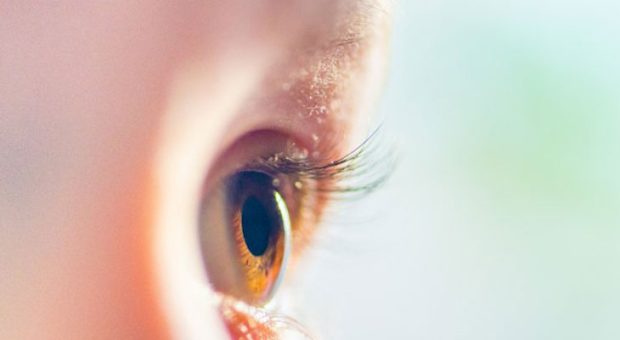
Cornea implant from pig skin used to restore sight in Indian patients
PTI, Aug 13, 2022, 10:13 AM IST

Credit: iStock Photo
Researchers have used an implant made from pig’s skin to restore vision to 20 people in India and Iran with diseased corneas, most of whom were blind prior to the transplant.
The research, published on Thursday in the journal Nature Biotechnology, brings hope to those suffering from corneal blindness and low vision.
The international team, including researchers from AIIMS, New Delhi, used a bioengineered implant as an alternative to the transplantation of donated human corneas, which are scarce in countries where the need for them is greatest.
”The results show that it is possible to develop a biomaterial that meets all the criteria for being used as human implants, which can be mass-produced and stored up to two years and thereby reach even more people with vision problems,” said Neil Lagali, a professor at Linkoping University (LiU) in Sweden.
”This gets us around the problem of shortage of donated corneal tissue and access to other treatments for eye diseases,” said Lagali, one of the researchers behind the study.
The reserachers noted that an estimated 12.7 million people around the world are blind due to their corneas, which is the outermost transparent layer of the eye, being damaged or diseased.
Most of those who need cornea transplants live in low and middle-income countries in which access to treatments is very limited.
The cornea consists mainly of the protein collagen. To create an alternative to human cornea, the researchers used collagen molecules derived from pig skin that were highly purified and produced under strict conditions for human use.
The pig skin used is a byproduct of the food industry, making it easy to access and economically advantageous.
The researchers stabilised the loose collagen molecules forming a robust and transparent material that could withstand handling and implantation in the eye.
While donated corneas must be used within two weeks, the bioengineered corneas can be stored for up to two years before use, the researchers said.
They also developed a new, minimally invasive method for treating the disease keratoconus, in which the cornea becomes so thin that it can lead to blindness. Currenty, a keratoconus patient’s cornea at advanced stage is surgically removed and replaced by a donated cornea, which is sewn into place using surgical sutures.
”With our method, the surgeon doesn’t need to remove the patient’s own tissue. Instead, a small incision is made, through which the implant is inserted into the existing cornea,” said Lagali.
No stitches are needed with this new surgical method. The incision in the cornea can be made with high precision thanks to an advanced laser, but also, when needed, by hand with simple surgical instruments, the researchers said.
The surgical method and the implants were used by surgeons in Iran and India, two countries where many people suffer from corneal blindness and low vision.
Twenty people — 12 from Iran and 8 from India — who were either blind or on the verge of losing sight due to advanced keratoconus participated in the pilot clinical study and received the biomaterial implant.
”The operations were free from complications; the tissue healed fast; and an eight-week treatment with immunosuppressive eye drops was enough to prevent rejection of the implant,” the researchers said.
The primary purpose of the pilot clinical study was to investigate whether the implant was safe to use. However, the researchers were surprised as the cornea’s thickness and curvature were restored to normal.
At the group level, the participants’ sight improved as much as it would have after a cornea transplant with donated tissue, they said.
The researchers noted that before the operation, 14 of the 20 participants were blind. After two years, none of them was blind any more.
Three of the Indian participants who had been blind prior to the study had perfect (20/20) vision after the operation, they added.
Udayavani is now on Telegram. Click here to join our channel and stay updated with the latest news.
Top News

Related Articles More

‘Life sprouts in space’, says ISRO after cowpea seeds germinate under microgravity conditions

AI tools like GPT-4 do not fare well in ‘conversing’ with patients, study finds

Andhra Pradesh-based start-up tests ultra-high-frequency communication tech on ISRO’s POEM-4

New Year’s greetings with an artificial but intelligent twist

Space docking experiment: Spacecraft injected into right orbit, ISRO eyes another tech feat
MUST WATCH
Latest Additions

TN CM announces USD 1 million prize for decoding Indus valley script

PM assures no welfare scheme to be stopped if BJP forms govt in Delhi, says AAP has no vision

Siddaramaiah urges youth to stay away from divisive forces misusing religion, caste

Kasaragod: Fire breaks out at plywood mill in Battipadavu

Ramesh Bidhuri expresses regret as row erupts over his ‘roads like Priyanka Gandhi’s cheeks’ remarks
Thanks for visiting Udayavani
You seem to have an Ad Blocker on.
To continue reading, please turn it off or whitelist Udayavani.



















